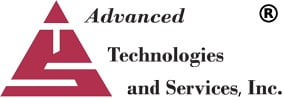Advanced Technologies & Services, Inc. (ATS), a leading provider of operations and business support systems (OSS/BSS) for communications providers, announced it has added four new clients to its Universal Service Fund Traffic Study service.
In June 2006, the FCC adopted an order that increased the Safe Harbor contribution percentage for the federal USF from 28.5% to 37.1% for wireless carriers and assigned a 64.9% Safe Harbor for VoIP carriers. Carriers that rely on the Safe Harbor face a competitive disadvantage to the extent that other carriers’ reliance on traffic studies or actual interstate revenues leads to a lower contribution percentage, meaning that those carriers pay less money into the USF and attempt to recover fewer dollars from their customers. The increased Safe Harbor can also strain carriers’ revenues to the extent that they are unable, as a practical matter, to pass the higher contributions through to their customers.
Although carriers have faced these issues for years, the FCC’s decision to increase the “Safe Harbor” provides a good reason for carriers to re-examine the wisdom of relying on the Safe Harbor. By reducing their contribution to a level that accurately reflects the percentage of interstate and international traffic, carriers will be better able to decrease the surcharges added to their customers’ bills, which may help to reduce subscriber churn in an increasingly competitive market. For carriers who do not have the resources to rely on actual revenues for each USF filing, performing a traffic study is the most effective way to decrease USF contributions to a level that accurately reflects interstate and international usage.
Of the four new clients, two are wireless providers and the other two are VoIP providers. All four studies uncovered a considerable difference between the carrier’s actual percentage of interstate use and the Safe Harbor contribution percentage. As a result, each of the carriers was able to significantly reduce their contribution to the USF and decrease their customers’ bills.
